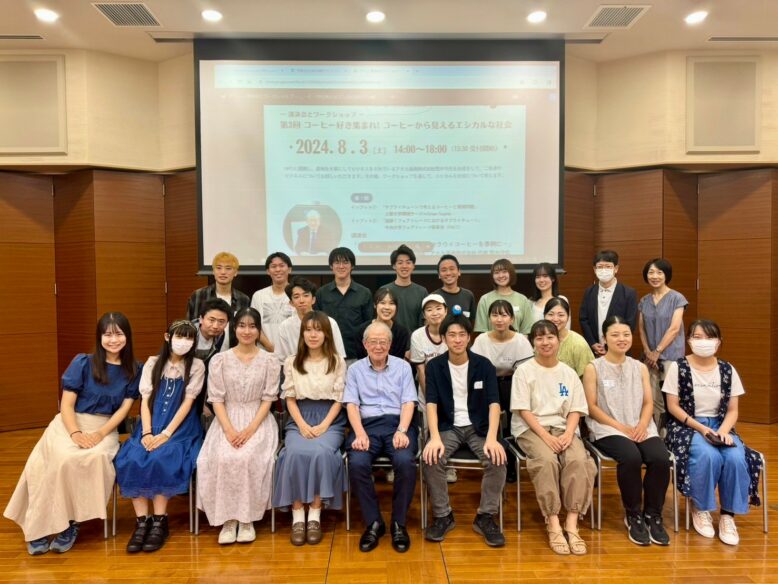
On August 3, 2024, the NPO Seibo, in collaboration with Green Sophia, an environmental club at Sophia University, FACT, a student organization at Chuo University promoting fair trade, and with the support of Shirayuri University, held the “3rd Coffee Lovers Unite! Building an Ethical Society Through Coffee” event.
This event, now in its third iteration, aims to explore with university students how to create a future-oriented work and consumption culture, and to share and encourage the activities students are currently undertaking. This time, students from Chuo University, Sophia University, Rikkyo University, Tokyo University of Science, and International Christian University participated in the event.
Main Programs
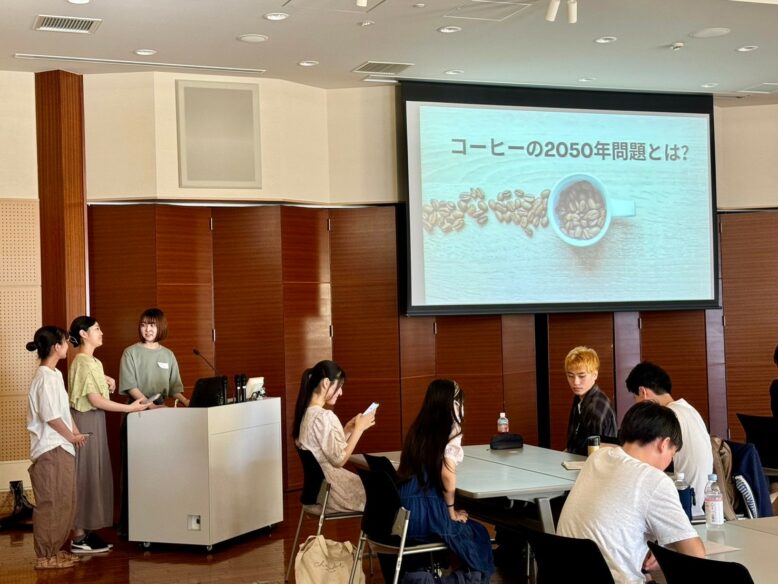
We were honored to have Mr. Araki, the CEO of Ataka Trading Company, which provides NPO Seibo with raw coffee beans from Malawi, join us to speak about the allure of the coffee industry and its future prospects.
He shared his personal story of being born on Rebun Island, the northernmost point of Hokkaido, where he was raised in a close-knit, nature-rich environment, and later began his career as a salaryman at Ataka & Co., Ltd. He explained how this background influenced his commitment to valuing people and production areas, which has driven him to explore and open up various coffee markets.
Ataka Trading was the first company to import Rwandan coffee, which is now widely distributed across many markets. Similarly, they were the first to import Malawian coffee into Japan.
Fairtrade from Ataka Trading
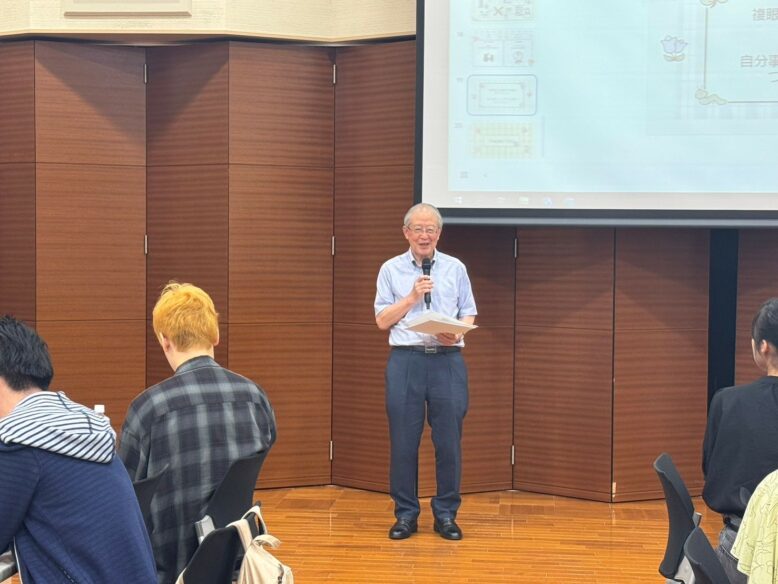
Mr. Araki’s emphasis on the importance of trust with production areas in business was particularly memorable. He mentioned that a foundation of fair trade is the long-term establishment of mutual trust.
For instance, even when frost hits a region and they can’t harvest raw beans as usual, they continue to purchase from that farm at the regular price. This approach ensures that the people working in production areas have a stable income. When the harvest and quality are good, these farms prioritize providing raw beans to Ataka Trading.
Since 2017, Mr. Araki has been working with NPO Seibo to redirect raw beans from Malawi to support school meal programs. It’s particularly inspiring that the goal is not just to expand the market for Malawian beans, but also to reinvest in the future of the children in the producing country.
The collaboration between Ataka Trading and NPO Seibo as part of their SDGs efforts has been featured by the All Japan Coffee Association.
Workshop by Students
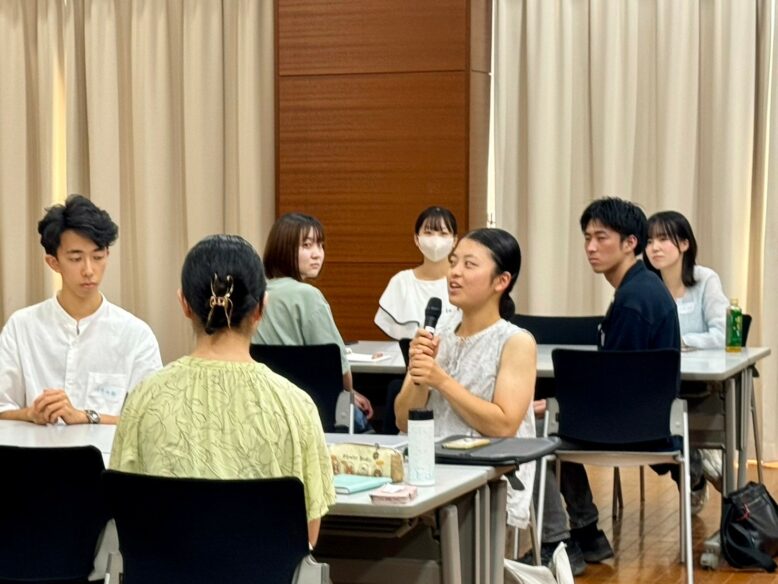
Reflecting on Mr. Araki’s lecture from Ataka Trading, we learned the following:
-The importance of understanding the supply chain of products, starting with coffee.
-Environmental issues such as the “Coffee 2050 Problem” and the necessary actions for future industries.
-These themes provided us with the opportunity to not only learn about the producers behind the products we purchase but also to reflect on the values we should prioritize in our daily choices.
Additionally, the concrete example of the collaboration between NPO Seibo and Ataka Trading for Malawian coffee highlighted how NPOs can be integrated into the supply chain. This, along with student-led initiatives like proxy sales, showed us that there are many ways we can contribute to society and support fair trade in coffee.
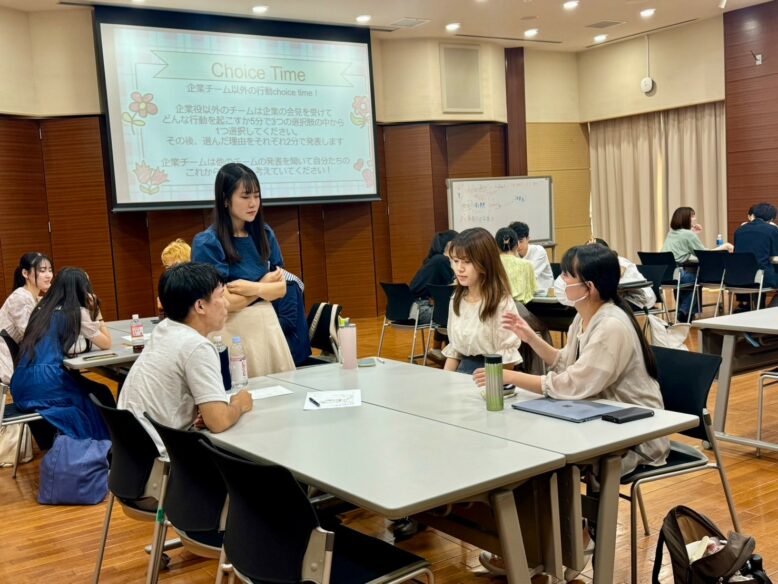
Finally, the staff from NPO Seibo conducted a workshop called “Game of Choice,” which also served as financial education. In this game, participants were divided into five groups—businesses, NGOs, consumers, retailers, and companies from the producing country. The game was based on a scenario where it is discovered that a business has been complicit in child labor in the producing country.
The business team had to hold a press conference, explain the situation to each sector and stakeholder, and work together to find a compromise solution. This workshop provided an opportunity to think more deeply about the supply chain and fair trade.
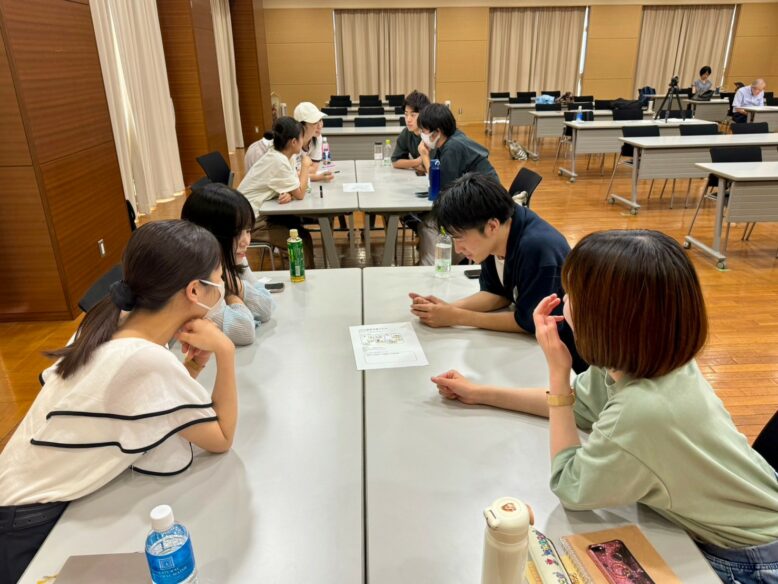
Finally, I would like to share the feedback received from Ms. Sera Nakamura, a fourth-year student in the English Literature Department at Shirayuri University.
“After completing this workshop, I first thought about the future of fair trade. I learned about the environmental impact at each stage of the supply chain. I also became aware of the ‘2050 Coffee Problem’ for the first time. Therefore, I felt that future fair trade efforts should not only involve trading goods at appropriate prices but also consider measures to reduce environmental impact. For example, by processing waste from the production stage into other products besides beans, I believe we can create environmentally friendly coffee production, which connects to protecting producers’ livelihoods and the environment.
“Next, I reflected on my own career perspective. From Mr. Araki’s talk, I learned that ‘coffee is a fascinating and mysterious beverage’ and an essential element of life. From this, I felt that curiosity is indispensable in work. I discovered that coffee is not just a drink; it has many facets such as delicacy in taste variations due to people and methods, and its role in communication. Curiosity, I believe, also leads to loving one’s work. Therefore, I want to remember to never lose my curiosity in the future.”
This lecture and workshop were incredibly fruitful, thanks in part to the support from Ataka Trading and the provision of the venue by Shirayuri Women’s University. We hope to continue working on initiatives that contribute to the future of our world.


